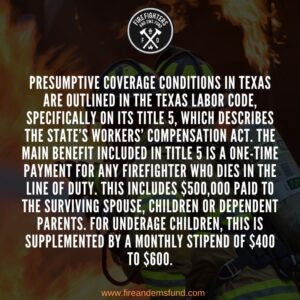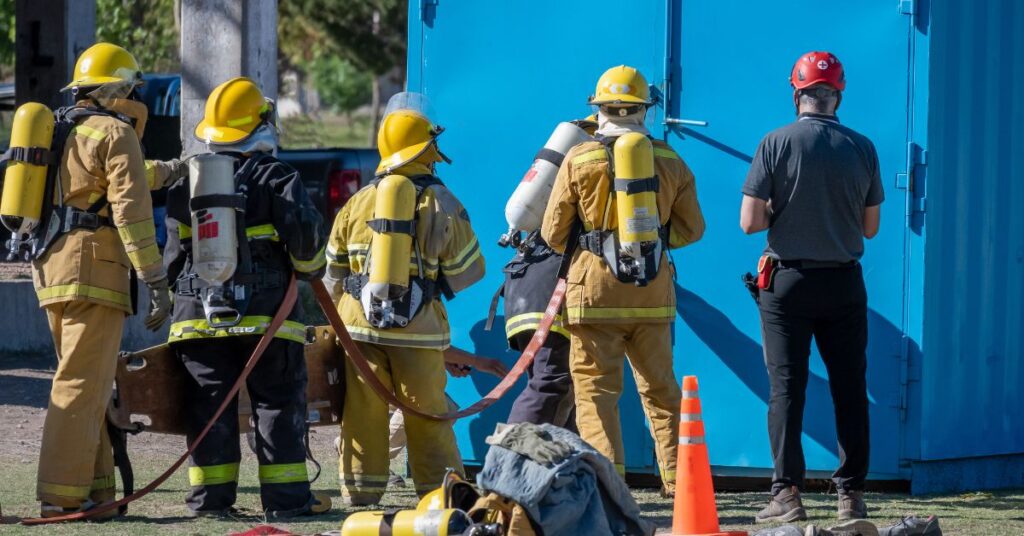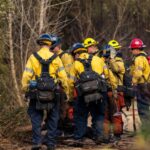As one of the hottest States in the Continental U.S., Texas is no stranger to the perils of fire and uncontrolled nature. As a result, first responders in Texas routinely deal with extreme exposure – both during a routine shift and in the years following their service.
At first glance, “years” may seem like an exaggeration. However, the consequences of frequent contact with PFAS (per- and poly-fluoroalkyl substances) and other carcinogens often take years to become evident. And when they do, the process to claim workers’ compensation can take just as long. In the meantime, firefighters and rescuers must make improbable compromises to afford treatment and provide for their families.
Presumptive coverage laws were created to fill this void. In Texas, they are particularly well-developed and include many conditions that other jurisdictions overlook. However, they also come with significant exclusions. Today, we’re getting into the nitty-gritty of presumptive cancer coverage in Texas.
What is Presumptive Cancer Coverage?
Presumptive cancer coverage laws for firefighters are statutes that create a presumption that certain health conditions or illnesses developed by firefighters are work-related. These laws are designed to make it easier for firefighters to receive workers’ compensation benefits or disability pensions for specific health issues that are commonly associated with their occupation.
Usually, these laws affect specific, predetermined lists of “covered conditions.” Any firefighter who develops such a condition and meets the eligibility criteria can declare it as a “work-related injury” – unless the insurance company has specific evidence to the contrary.
Texas Cancer Coverage for Firefighters: How Does it Work?
Presumptive coverage conditions in Texas are outlined in the Texas Labor Code, specifically on its Title 5, which describes the State’s Workers’ Compensation Act.
What is covered under this bill?

The main benefit included in Title 5 is a one-time payment for any firefighter who dies in the line of duty. This includes $500,000 paid to the surviving spouse, children or dependent parents. For underage children, this is supplemented by a monthly stipend of $400 to $600.
But death is a fortunately rare outcome. What about the firefighters who are left permanently disabled due to an occupational injury? They can receive worker’s compensation payments for up to 75% of their average weekly wage. This benefit can be paid to the worker directly, to their spouse for life, or to their children until they turn 18 or 25 (if they’re studying full-time).
Presumptive coverage is awarded for the following conditions:
- Cancers are classified as “caused by exposure” to carcinogens, heat, smoke, or radiation by the International Agency for Research on Cancer. This includes tumors on the stomach, colon, rectum, skin, and prostate, as well as non-Hodgkin’s lymphoma and multiple myeloma.
- Tuberculosis
- Smallpox
- Mesothelioma
- Acute myocardial infarction (heart attack)
What’s the catch?
Although the list of recognized conditions is significantly wider than in most States, the eligibility requirements are also particularly stringent.
For the presumption to be valid, a firefighter, paramedic or first responder must have been employed for at least five consecutive years. Also, they must undergo a physical exam at the beginning of service, showing no evidence of the condition at hand before exposure.
In addition, for presumptive coverage of cancer, a firefighter must have regularly responded to events that involved the documented disease of radiation or a known carcinogen – something that is very hard to prove, in many cases!
Meanwhile, heart attacks must occur close to a “strenuous” emergency response activity (such as a heatwave).
Finally, the firefighters and their spouses must show that they did not regularly smoke tobacco at the time of diagnosis.
Final Thoughts
Ultimately, these presumptions stand on several layers of paperwork or documentation, which makes them significantly harder to obtain than they should be. The Texas Department of Insurance offers advisory services for firefighters who wish to claim benefits for these conditions – as the process is long and intimidating.
If we truly want to protect our firefighters, it is extremely important to simplify these laws. Otherwise, we risk leaving our bravest heroes in Texas unprotected.









